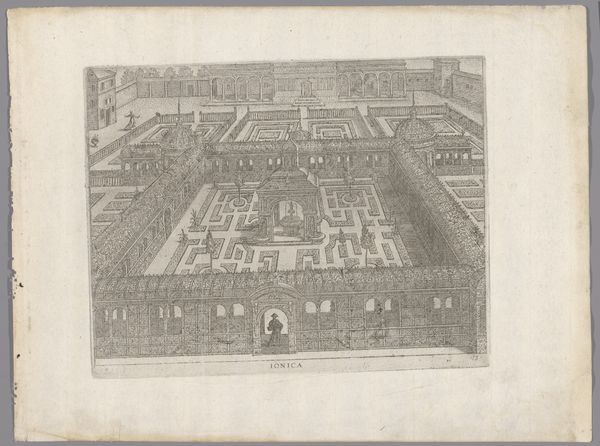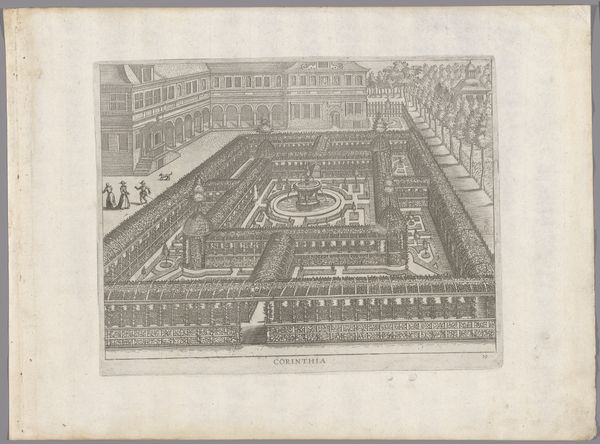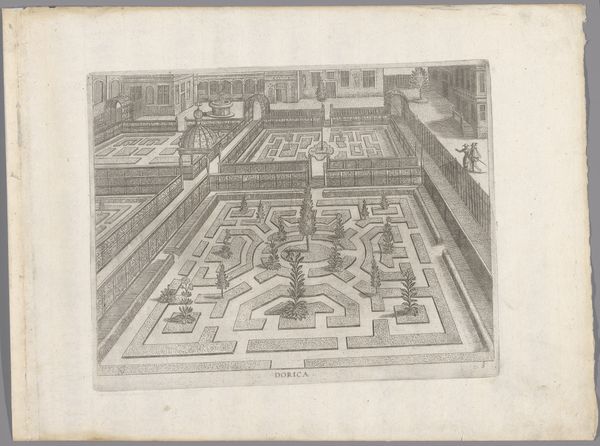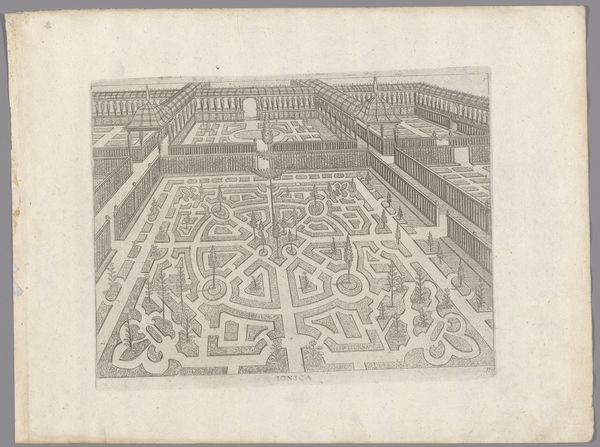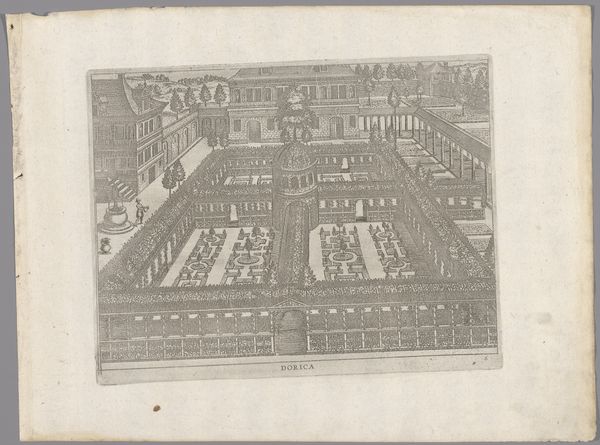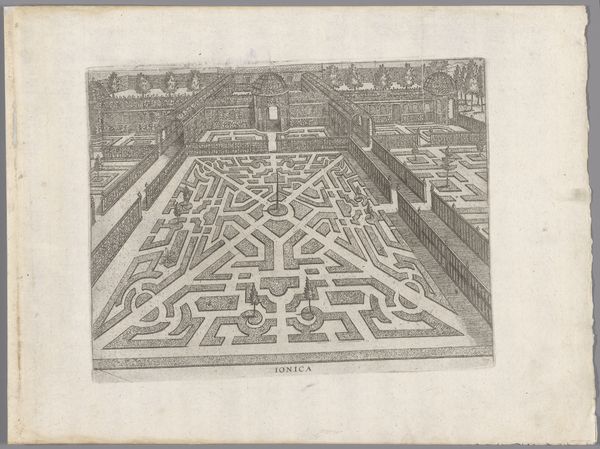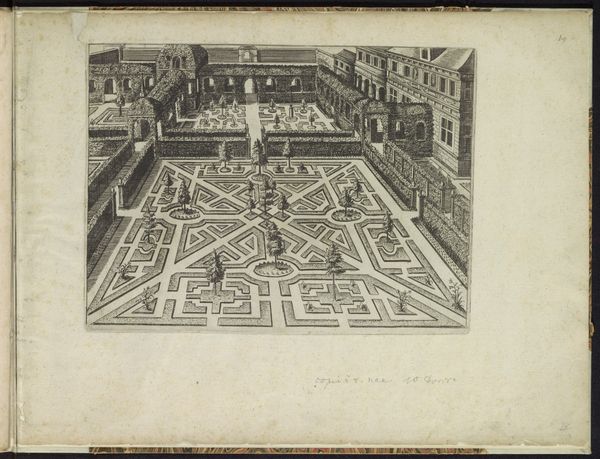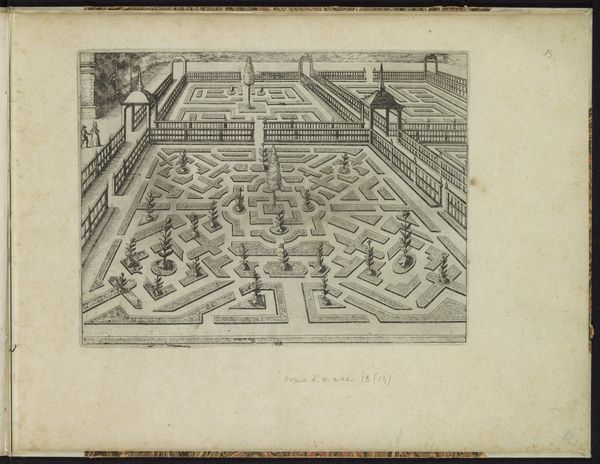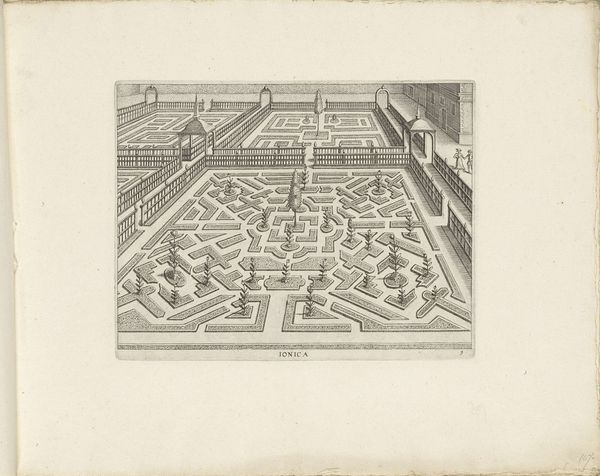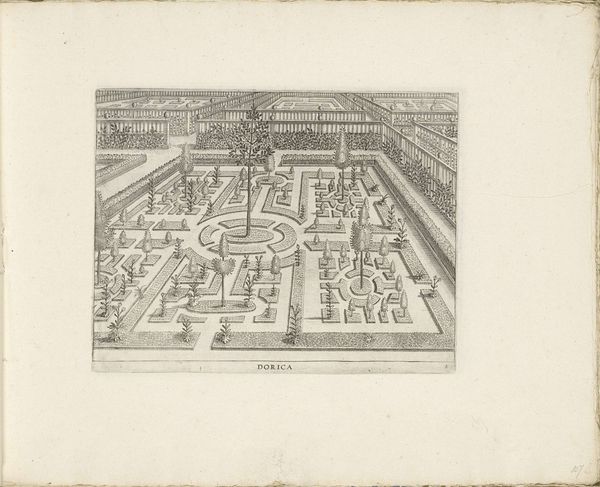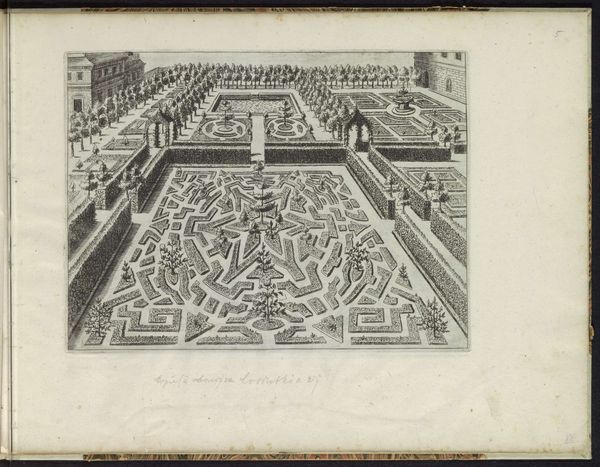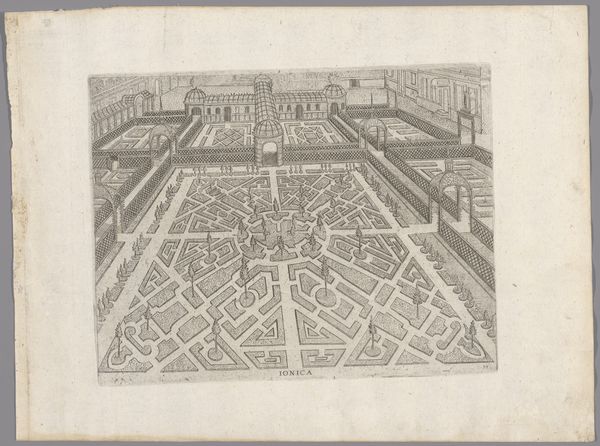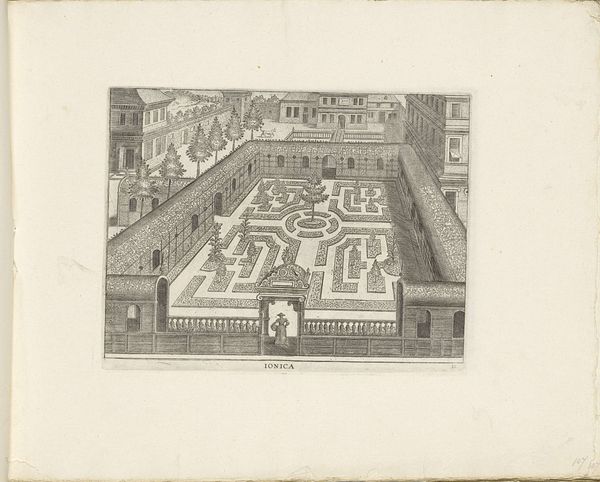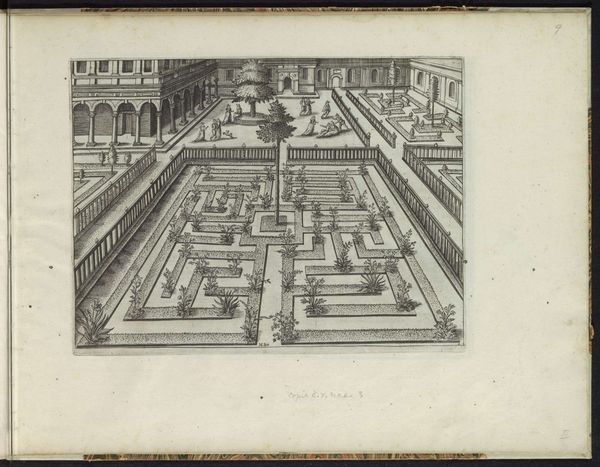
print, paper, engraving, architecture
# print
#
landscape
#
mannerism
#
paper
#
geometric
#
engraving
#
architecture
Dimensions: height 191 mm, width 247 mm
Copyright: Rijks Museum: Open Domain
Editor: So, this is "Tuin met een parterre omsloten door een gang van traliewerk," or "Garden with a parterre enclosed by a trellis walkway," a print from 1583. It’s fascinating how such a meticulously planned space is rendered in engraving on paper. The geometry is really striking. What's your take on this, what story does it tell? Curator: This engraving, emblematic of Mannerism, offers a window into the socio-political landscape of the late 16th century. These intricate gardens were status symbols. Think of the labour and resources required to maintain such manicured spaces! Consider who would have access to this garden versus the majority. The garden becomes a physical manifestation of power and exclusion, doesn’t it? Editor: That’s a great point! The labor involved must have been extensive. But beyond that, I wonder about the symbolic meaning of the garden itself? Curator: These formal gardens, with their controlled nature, speak to a desire to impose order onto the world – a world that, at the time, was experiencing religious conflict, burgeoning scientific discovery, and shifts in power dynamics. Think of the rigid structure mirroring rigid social hierarchies. Do you see how the deliberate composition restricts access, enforcing certain paths and viewpoints? Editor: I do now. So the act of controlling nature reflects a larger project of social control, a visual metaphor of domination? Curator: Exactly. And the emphasis on perspective and geometry reveals a fascination with reason and a desire to create a perfect, idealized space, set apart from the messiness of everyday life. The garden, therefore, becomes a stage for performative identity and privilege. Editor: That connection between social control and the layout of the garden makes me look at it completely differently now. I never thought about garden design as an expression of power before! Curator: Art often reflects and reinforces existing social structures. Asking questions about those power dynamics can open up so much in our interpretation.
Comments
No comments
Be the first to comment and join the conversation on the ultimate creative platform.
